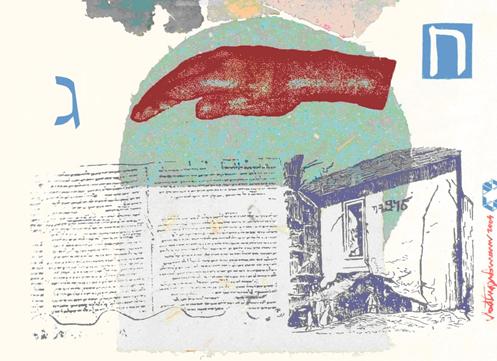Da Bíblia aos Carmina Burana: sobre o Cântico dos cânticos e Ob amoris pressuram
DOI:
https://doi.org/10.17851/1982-3053.2.2.71-79Palabras clave:
Bíblia, Cântico, Carmina BuranaResumen
Este artigo analisa comparativamente o Cântico dos cânticos e um poema dos Carmina Burana, a saber, Ob amoris pressuram (CB 164), composição atribuída a Pedro de Blois.
Descargas
Citas
ALLEN, Peter L. The art of love: amatory fiction from Ovid to the Romance of the Rose. Philadelphia: University of Pennsylvania Press, 1992.
BRÜCKMANN, John; COUCHMAN, Jane. Du ‘Cantique des cantiques’ aux ‘Carmina Burana’: amour sacré et amour érotique. In: ROY, Bruno (dir.). L’Érotisme au Moyen Âge. Études présentées au Troisième colloque de l’Institut d’études médiévales. Québec: Les Éditions de l’Aurore, 1977.
CARTUCCI, Camille-Paul (Trad.). Cantique des Cantiques. Metz: Paroisse Saint-Symphorien Longeville-Les-Metz, 1995. Disponível em: http://st.symphorien.metz.free.fr/index.htm; cons. dez. 2007.
CAVALCANTI, Geraldo Holanda. O Cântico dos cânticos: um ensaio de interpretação através de suas traduções. São Paulo: Edusp, 2005.
DRONKE, Peter. Medieval Latin and the rise of European love-lyric. vol. 1: problems and interpretations. 2a. ed. Oxford: Oxford University Press, 1968.
GILL, John. An exposition of the Old and New Testament in which the sense of the Sacred Text is given. Londres: Mathews and Leigh, 1809. [Edição eletrônica: PIERCE, Larry et alii, 1994-1995]
GREENE, Ellen. The erotics of domination: male desire and the mistress in Latin love poetry. Maryland: Johns Hopkins University Press, 1998.
HARRIS, R. Laird; ARCHER Jr., Gleason L.; WALTKE, Bruce K. Dicionário internacional de teologia do Antigo Testamento. São Paulo: Vida Nova, 1998.
HILKA, Alfons; SCHUMANN, Otto. Carmina Burana. Mit Benutzung der Vorarbeiten Wilhelm Meyers; kritisch herausgegeben von Alfons Hilka und Otto Schumann. I Band: Text – 2: Die Liebeslieder – Herausgegeben von Otto Schumann. Heildelberg: Carl Winter’s Universitätbuchhandlung, 1941.
JACOB, Irene; JACOB, Walter. “Flora”. In: FREEDMAN, David Noel (ed.). Anchor Bible dictionary. Nova Iorque: Doubleday, 1992. v. 2. p. 803-817.
KIMELMAN, Reuven. Rabbi Yokhanan and Origen on the Song of Songs: a Third-Century Jewish-Christian disputation. The Harvard Theological Review. Cambridge, v. 73, n. 3/4, p. 567-595. jul.-out. 1980.
MATTER, E. Ann. The voice of my beloved: the Song of Songs in Western Medieval Christianity. Philadelphia: University of Pennsylvania Press, 1992.
ROSSI, Piervittorio. Carmina Burana. Milão: Bompiani, 1989.
SAMYN, Henrique Marques. Hércules e a pastora: alegoria e tradição nos Carmina Burana. Palimpsesto. Rio de Janeiro, v. 6, ano 6. 2007. (no prelo)
SIGNER, Michael A. Restoring the Narrative: Jewish and Christian exegesis in the Twelfth Century. In: McAULIFFE, Jane Dammen; WALFISH, Barry D.; GOERING, Joseph W. Reverence for the Word: Medieval scriptural exegesis in Judaism, Christianity, and Islam. Nova Iorque: Oxford University Press, 2003.
WALSH, Patrick G. (Ed.) Love lyrics from the Carmina Burana. North Carolina: The University of North Carolina Press, 1993.
WOLFSON, Elliot R. Asceticism and eroticism in Medieval Jewish philosophical and mystical exegesis of the Song of Songs. In: McAULIFFE, Jane Dammen; WALFISH, Barry D.; GOERING, Joseph W. Reverence for the Word: Medieval scriptural exegesis in Judaism, Christianity, and Islam. Nova Iorque: Oxford University Press, 2003.
YARZA, Carlos. Prólogo. In: ______ ; MOLES, Luís. Carmina Burana. Barcelona: Seix Barral, 1981.
Descargas
Publicado
Cómo citar
Número
Sección
Licencia
Os direitos autorais pertencem exclusivamente aos autores. Os direitos de licenciamento utilizados pelo periódico é a licença Creative Commons Attribution 4.0 (CC BY 4.0): são permitidos o compartilhamento (cópia e distribuição do material em qualquer meio ou formato) e adaptação (remix, transformação e criação de material a partir do conteúdo assim licenciado para quaisquer fins, inclusive comerciais.






